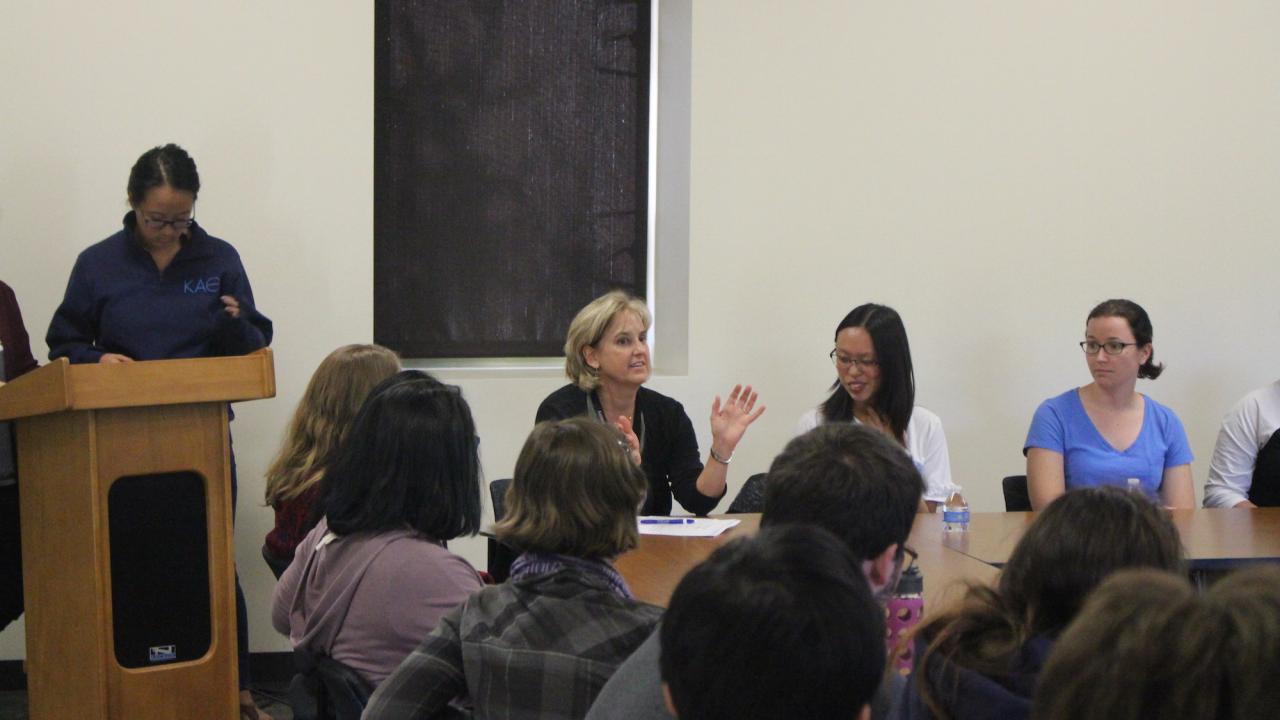
How to Get Involved in Undergraduate Research
Believe it or not, it is possible for undergraduate students to do it all – school, work, social life and research that makes an impact. But conducting research as an undergraduate can come with challenges. On Oct. 12, 2017, faculty and students from the Department of Chemistry shared their personal experiences and gave advice to help students make the most of their undergraduate research experience. Here are their best tips:
1. Consider this: Your major may not matter.
It is not absolutely necessary for your major to align with the research you wind up doing. It is most important to just find something that interests you. For example, chemistry students can find crossover in physics, while mathematics and statistics majors may find they’re needed in anthropology or psychology.
2. But people definitely do matter.
You will spend a lot of time working with your supervisors, so it is essential that you find a faculty member or graduate student you feel comfortable working with.
3. Initiate contact.
Professors do not bite. After you’ve identified the lab or person you’d like to work with, talk to them! Send them an email or go to office hours, and ask if there are open positions. Make sure to express your enthusiasm for their work and your own interests, as well as the relevant courses you have taken.
4. You don’t have to know anything! (besides General Chemistry)
In fact, faculty members and graduate students expect you to know nothing. They only ask that you are willing to learn and work hard. It might be a difficult adjustment, but you can and should ask questions when needed.
5. Treat this experience like you would a real job.
Always be prepared, present and punctual. And realize you are forming real, professional relationships. Try to get to know your supervisors, and if the opportunity presents itself, share your professional goals with them. They care and want to help you get there! When you need a letter of recommendation, this will be especially relevant.
Also, please proofread and spellcheck the emails you send. This is underrated but very important.
6. Be honest, and communicate openly.
Your success in research will be the direct result of your commitment and communication. If you can only commit six hours of work a week, do not say you can do more.
Similarly, if you feel that you can no longer commit, be upfront with your supervisor. It is better to end on good terms than sever what good relationships you might have made.
7. Be flexible.
You may have to adjust your schedule to fit in lab hours. Do your best to block out at least two days where you can commit at least 3 to 4 hours in the lab, as that is what most labs prefer.
8. Know your limits.
Be aware of your other commitments (school, work, friends, sleep, etc.). That way, you can be realistic about how much time you are able commit without sacrificing those commitments and/or your physical or mental health.
9. Lastly, be proud of the research you do.
What you do in research does carry influence, both in the scientific community and for yourself. Don’t forget that what you do in research will last. You are forging a path for future researchers to continue learning, and at the same time, laying down a solid foundation for your own future career. Go you!
— Jeanette Yue, undergraduate intern in communications and marketing in the UC Davis College of Letters and Science
